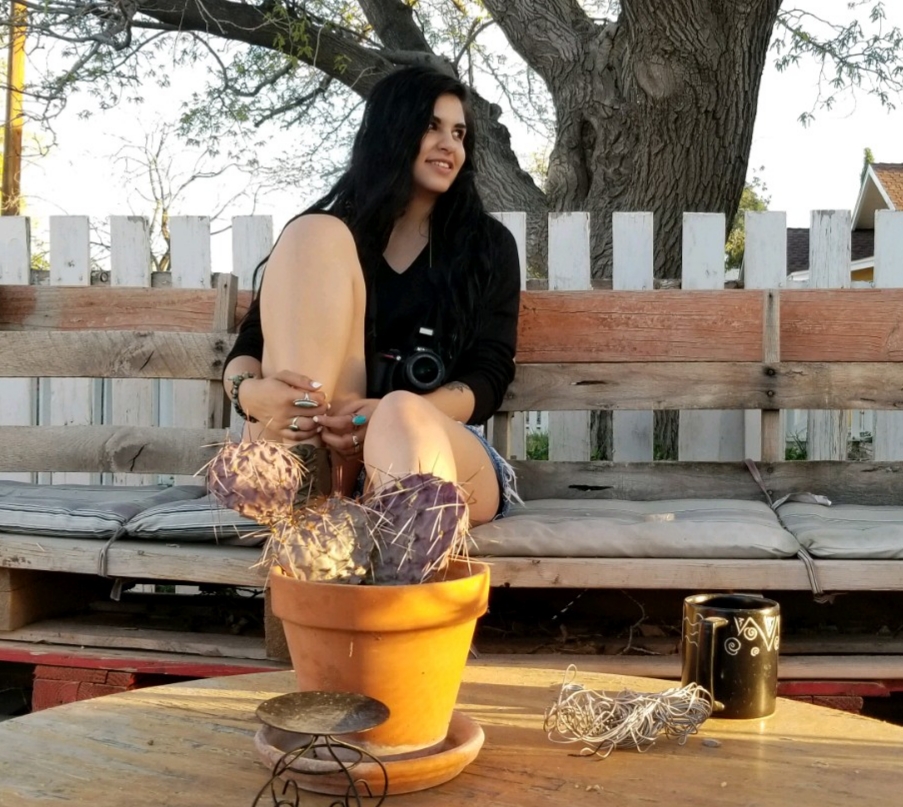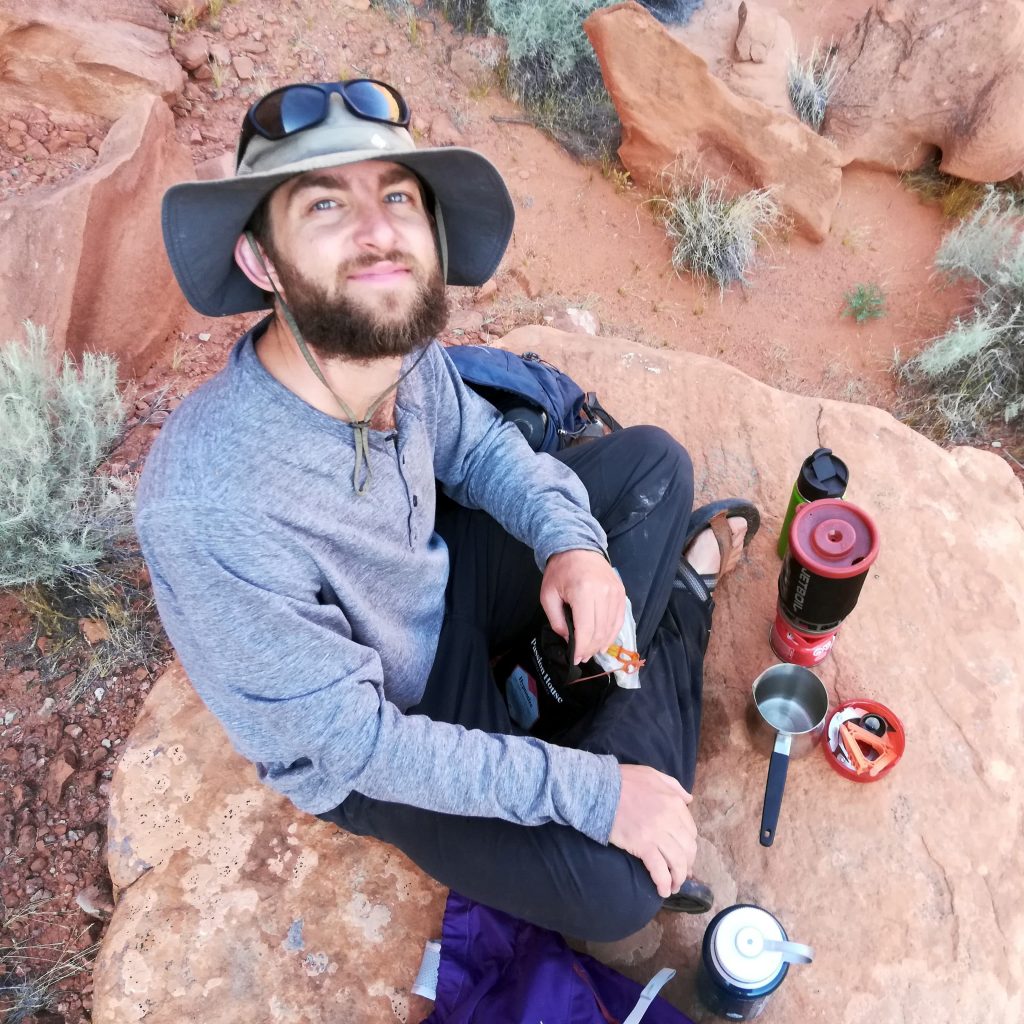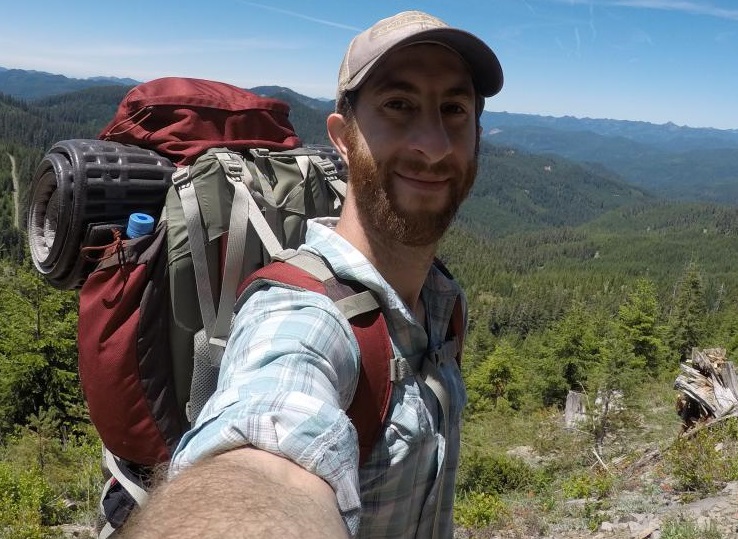
Kei Lin Chang

Kei Lin Chang graduated from the University of California, Irvine with a B.S. in Ecology and Evolutionary Biology and completed the Marine Resource Management graduate certificate upon her first year of graduate school at Oregon State University. Through the EAH program, she hopes to combine her love and interest in science and art to assist with science communication.
Emily Herrera

Emily Herrera was born and raised in New Mexico. She attended the University of New Mexico and recieved a B.A. in both Psychology and English, graduating in 2018. As her focus throughout her English career was predominately eco literature and eco criticism, she wanted to pursue this further. By combining skills in both of these areas, she wanted to attend OSU specifically in the Environmental Arts and Humanities field to give a eco-psychological perspective to environmental studies in hopes that we can find better understanding of each other as human beings in relation to our environment.
Thea Lemberger

Thea Lemberger received her bachelors degree in communications at the University of California, Los Angeles and competed as a member of the Women’s basketball team as a three-time team-captain. After several years playing professionally around the globe, she found herself drawing further away from the sports sector and closer into the natural world. This draw is spiritual and inexplicable without the use of poetic expression, but the relevance and urgency of today‘s environmental crises motivated Thea to pursue an education in the field to discover its practical use. With forests, reforestation, and the humanities as a centerpiece of interests, and with Oregon as the bestowed timber country, she chose Oregon State and the Environmental Arts and Humanities program.
Colette Ohotnicky

Colette Ohotnicky found her life-long passion for the outdoors while spending her high school years in the beautiful state of Alaska. She earned a B.S. in Biology from the University of Dallas, and has now moved to the Northwest to continue living her dreams. She is spending these two years experiencing the joy that the knowledge of beautiful things brings. She plans to help work on defining and reshaping the narrative of the human-nature relationship as we find solutions to environmental issues.
Vaughn Robison

Vaughn Robison is a communication arts director and fifth-generation Oregon coast resident. After leaving home to earn a B.S. in Communication from the University of Utah, he developed a career using images, words and environments to communicate ideas for ad agencies, non-profits, multi-national corporations and news outlets. Upon returning more than a decade later, he enrolled in the Environmental Arts and Humanities program to explore the potential for communication frameworks to assess and address the ecological, social and economic impacts of policy and management on fisheries communities. He aims to pair this academic understanding with his professional skill set to advocate for the interplay of sustainability between fish stocks and fisheries communities.
Wolky Samboy-Hillyer

Wolky Samboy-Hillyer is a passionate Kayaker, gamer, and student from Portland, OR. He graduated from the University of Puget Sound with a major in Science, Technology, & Society and a minor in Environmental Policy & Decision Making in 2016. Since then he has been an Americorps member serving in Tacoma, WA working on Food Justice and Sovereignty programs, an intern reading and reporting on Policy for Citizens for a Healthy Bay, and summer camp counselor. He is especially interested in rivers as centers and pathways for culture, identity, energy, and development.
Shane Scopatz

Shane Scopatz is a choreographer, performer, dancer, mixed media artist and improvisational specialist. As a professional dancer, Shane worked for names big and small, most notably the Batsheva Dance Company in Tel Aviv. He lived abroad in Israel for most of his twenties and while there he cultivated his enthusiasm for the environment and conservation. Reading books about wildlands in the US while living halfway around the world, instilled in him a special kind of empathy for landscapes across the American West. Holding tightly to both his passions, he finds integrity as an artist and person by fusing contemporary dance and the environment.
Ali Trueworthy

Ali completed her BS in mechanical and ocean engineering at Massachusetts Institute of Technology in 2017 and decided to continue her studies in engineering as a PhD student in Mechanical Engineering at OSU in Fall of 2018. Inspired by the ways of thinking and creating that she learns from the arts and humanities and motivated by the possibilities of blending disciplines, Ali joined the EAH program officially in the Fall of 2019. Ali does deign engineering research and science communication for the Pacific Marine Energy Center and is interested in engineering practice in the context of the climate emergency and ways we can create technologies that maintain our bond to place, encourage diversity, and preserve productive human and non-human relationships.
Anthony Vitale

Anthony Vitale received a B.A. in Environmental Geography from Kent State University in Ohio where he studied wildlife conservation and land-use change. His professional work as an environmental consultant and later as a journalist exposed him to many unique and insightful people with very different perspectives on the world around them. Within the Environmental Arts and Humanities program he seeks to integrate and build upon these experiences by developing a greater understanding of the nature-human relationship and progressing his communication skills.
Bingjie Yan

Bingjie Yan graduated from Shanghai normal University, received a bachelor degree of Public administration in 2016, then studied MBA pathway program at OSU and joined the EAH program in 2019. She wants to explore environmental and social sustainable development goals, add environmental protection, overall welfare, economic inclusion and ethics and other new value dimensions. She wishes to explore a new business model, so that circular economy can obtain valuable resources, achieve resource sharing rather than monopoly, expand access opportunities and inclusiveness, and have more positive social impact, shaping a wider ecosystem. She hopes to make use of the new media era to let more people understand the importance of environmental protection and care about the future development of human with society and nature.
